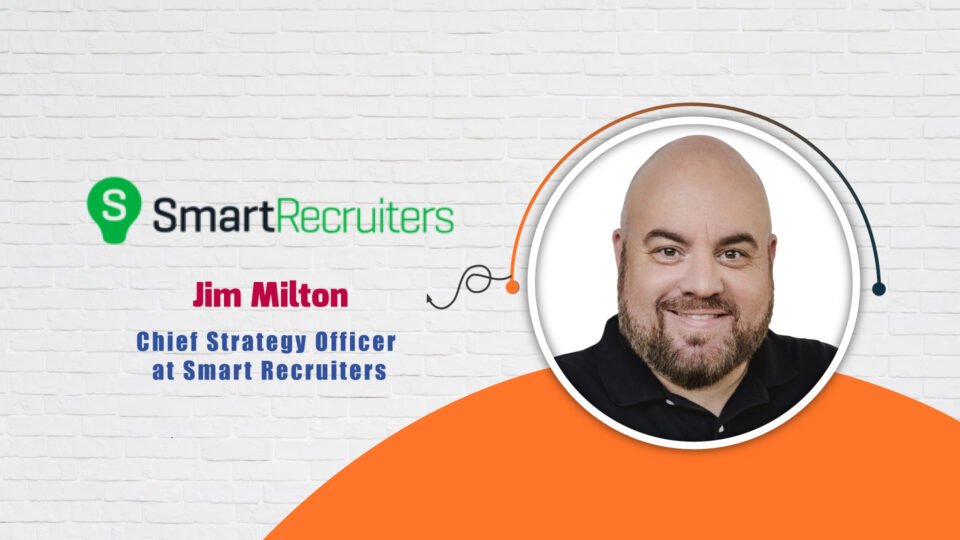Explore the effects of impending AI regulations on businesses and steps to prepare. Partner with SmartRecruiters for their commitment to regulatory readiness and prioritize risk management as a core objective.
Jim, could you please introduce yourself and tell us about your role at SmartRecruiters?
As Chief Strategy Officer, I help our company determine where to compete and how to win. This in part means playing the role of pragmatic futurist, helping us see around corners as much as possible. It’s not easy, and no one has a crystal ball. That said, I have been fortunate enough to anticipate and ride key tech waves throughout my career. I founded a digital music startup in 1998 (before Napster), filed a patent application on non fungible objects in 2000, and was an early participant in the social recruiting movement (employee 300 at LinkedIn and on the management team at SelectMinds which launched an industry first, social employee referral system). I am currently working with my colleagues at SmartRecruiters to anticipate the future of talent acquisition software.
What are some of the challenges and opportunities facing organizations with the rise of AI?
There are many. On one end of the spectrum, there’s a philosophical extreme of safety-ism or deceleration, which is a stance of presuming maximum AI risk and therefore moving very slowly or not at all to embrace the technology. This is dangerous, because it is becoming clear that businesses will either ride this huge wave, or be knocked down by it. To the other extreme, businesses must beware of opportunistic startups that leverage AI/ML with reckless abandon for ethics and regulations. There’s both fear and excitement from organizations around the impact of AI? On the fear side, many are concerned about job displacement. On the excitement side, there is hope AI will further automate tedious tasks. Can you elaborate on that?
Organizations and individuals with a bias for bureaucracy fear AI because it will lay all organizational efficiencies bare. These fears are psychologically rooted. At our core, most humans are, to one degree or another, afraid of change and to making a commitment to lifelong learning – which is required to maintain relevance in the job market. We simply need to commit.
Is SmartRecruiters harnessing AI in any way internally to fuel your processes?
My team is exploring internal tooling for automating marketing tasks for example. A colleague of mine just recently attended an AI conference and returned with some next practices to test. Every department is exploring possibilities.
I understand SmartRecruiters also uses AI to better serve its customers. Can you tell us a bit about that?
Our SmartAssistant product, for example, helps recruiters save countless hours of busy work by replacing optical matching (reading hundreds of resumes) with automated matching that compares resumes to jobs descriptions at scale to predict which candidates could make a good fit.
There has been talk of AI injecting bias into the recruiting / screening process. How do you view that?
It is important to note that the stakes are higher when one trusts AI to make decisions autonomously, vs when AI is used as a Co-Pilot to inform human decisions. Right now, it is too soon in my opinion to let an AI run a hiring process on full autopilot given bias and other risks. The specific challenge of bias in an interesting one. For example, if an AI is trained to “clone” a company’s top performers who also happen to be a homogenous group that was hired without regard to diversity, there is a risk of perpetuating bias. This is why I do not personally advocate for such an approach. In the end, AI is as biased or unbiased as the strategy behind its application.
There’s looming AI regulation. How will that impact organizations? And what should they do to get ready?
No one knows for certain what the regulatory landscape will look like down the road. It’s important therefore to work with vendors that have a proven track record of taking regulatory readiness very seriously. SmartRecruiters is one such organization. In light of the pace of change on this front, we have elevated Risk Management to become one of our top corporate objectives – as important as profitably and growth. We believe we must continuously earn and renew our trust with customers, so we resource Risk reduction and make it a highly visible, cross functional priority.
What are some best practices you can share for any organization looking to embrace AI in their organization?
It’s key to start in the problem space rather than formulating AI solutions in search or problems. I like using jobs to be done as an analytic framework for unpacking needs and identifying outcomes that I’d like to improve, such as increasing the speed or accuracy of a process. After prioritizing problems and desired outcomes, one can think about attacking them with intelligent automation.
What advice would you give a budding professional looking to work in the HR tech field?
Don’t be like me. Spend some time thinking not about the future, but instead about the timeless aspects of HR that will never change and become a student of HR’s core, “infinite game.” Build a deep and diverse human skill set that is AI proof. Then, or in parallel, start tinkering with AI and no-code development tools and create your first set of widgets that help you automate mundane tasks. You will become an invaluable asset to any HR team and will future-proof your career.

Jim Milton
Chief Strategy Officer at Smart Recruiters
With over 20 years of experience in software startups and scale-ups, Jim is a seasoned executive leader and strategist who aligns product and GTM functions to launch innovative products, grow revenue, and win markets. He has led two successful exits; SelectMinds->Oracle (HR Tech) and Portfolium->Instructure (EdTech).Jim is currently the Chief Strategy Officer at SmartRecruiters, a leading talent acquisition (SaaS) platform that enables hiring success for thousands of customers worldwide. Jim is also an active advisor at Tourial and a San Diego Ambassador at Product Marketing Alliance.

